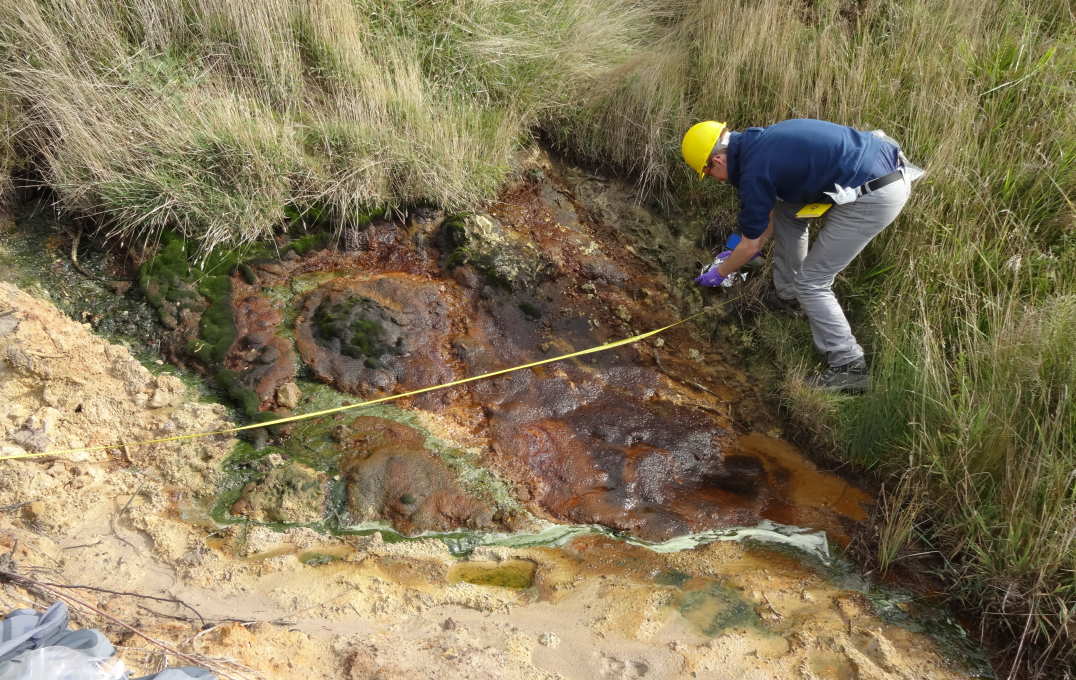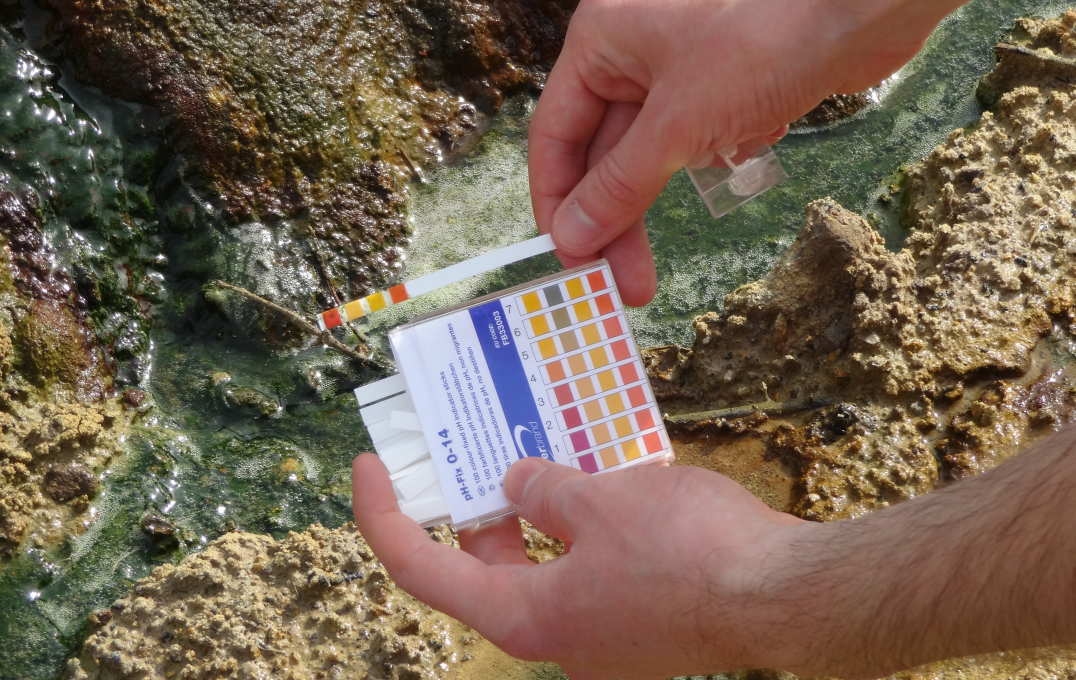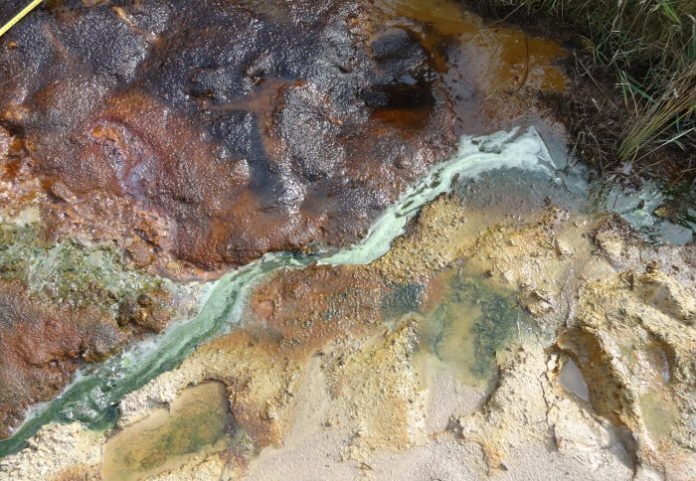Dorset composed of extreme acidic sulfur streams that thrive in extreme conditions. The similar environment was discovered in St Oswald’s Bay, mimics the conditions on Mars billions of years ago.
Studying streams, Imperial scientists found ancient traces of fatty acids – key building blocks of biological cells. As the environment is similar to Mars, their discovery suggests that life might once have existed on the Red Planet.

Scientists examined organic matter preserved in St Oswald’s Bay’s rock deposits. They found that the Bay’s iron-rich mineral goethite has numerous microorganisms and additionally hints of their fossilized organic remains. Goethite changes to haematite – a mineral that is commonly found on Mars and gives the planet its red color.
Applying their Dorset theory on Mars, scientists suggest there could be nearly 12,000 Olympic sized pools of organic matter on Mars that could represent traces of past life.
Study co-author Professor Mark Sephton from Imperial’s Department of Earth Science & Engineering said, “Mars harbored water billions of years ago, meaning some form of life might have thrived there. If life existed before the water dried up, it would probably have left remains that are preserved to this day in Martian rock.”
“We have yet to find convincing traces of organic matter that would indicate previous life on the Red Planet – but now we know which rocks to focus on.”

Co-author Jonathan Tan, also from the Department of Earth Science & Engineering, said: “St Oswald’s Bay is a present-day microcosm of middle-aged Mars. As the acid streams dry up, like during Mars’ ‘drying period’, they leave goethite minerals behind which preserve fatty acids that act as biological signatures.”
The authors say that if we do find traces of life, it will probably be in the form of bacteria that can thrive in extreme environments – like those found in Dorset’s acid streams.
The study is reported in Scientific Reports.
